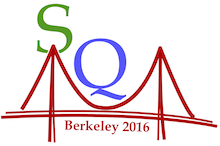Speaker
Benjamin Donigus
(Johann-Wolfgang-Goethe Univ. (DE))
Description
The high collision energies reached at the LHC lead to significant production yields of light (anti-)(hyper-)nuclei in proton-proton, proton-lead and, in particular, lead-lead collisions. The excellent particle identification capabilities of the ALICE apparatus allow for the detection of these rarely produced particles. Furthermore, the good vertexing performance gives the possibility to separate primary nuclei from those coming from the decay of heavier systems.
We present results on the production of stable nuclei and anti-nuclei in Pb-Pb and smaller collision systems. Hypernuclei production rates in Pb-Pb will also be shown, together with upper limits estimated on the production of lighter exotica candidates, like the hypothetical H-dibaryon and a possible $\Lambda$n bound state. All results are compared with predictions for the production in thermal (statistical) models and alternatives using coalescence.
In order to gain further insight into the production mechanisms of light nuclei, measurements on the elliptic flow of deuterons will be presented and compared to expectations from coalescence and hydrodynamic models.
In addition, the expectations from the currently ongoing run 2 and the upgraded ALICE detector in run 3 will be discussed.
| On behalf of collaboration: | ALICE |
|---|
Author
Benjamin Donigus
(Johann-Wolfgang-Goethe Univ. (DE))
